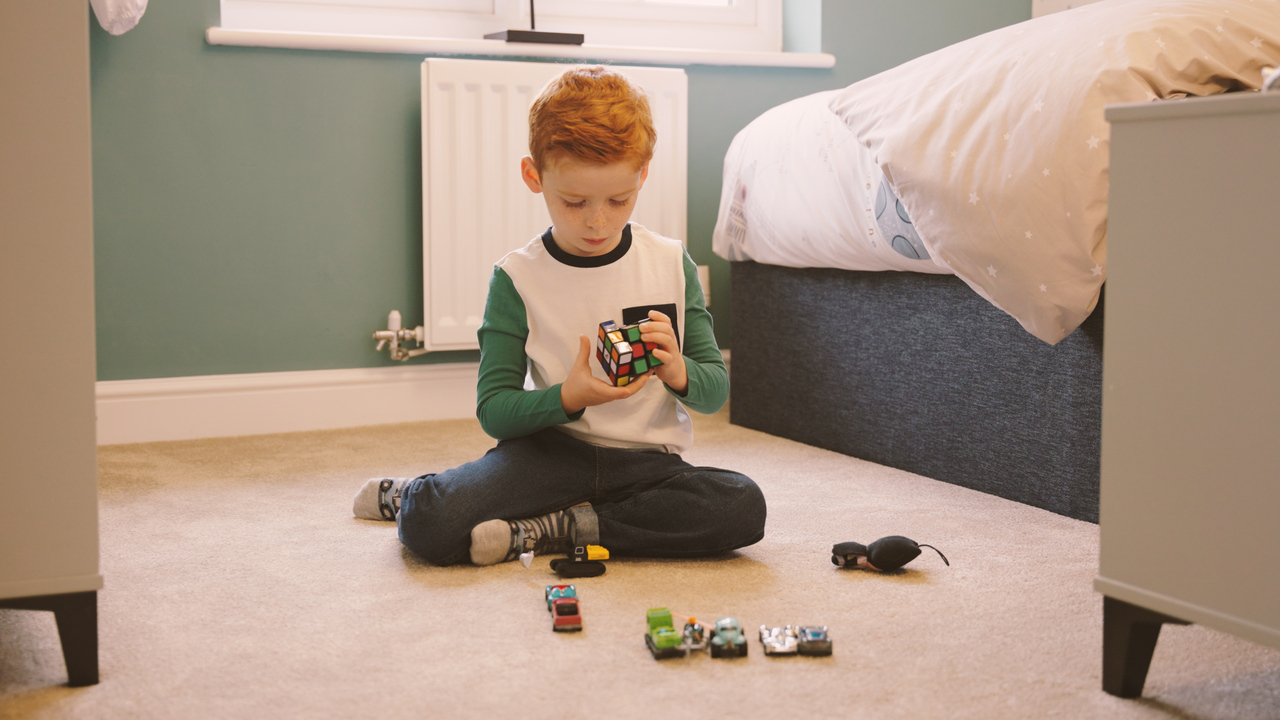Whether you’ve just moved with your family to a new home in a new area, or your children are returning to the same school they went to last year, the start of a new school year is often a bit daunting. At Redrow, we understand the importance of supporting families through these transitions.
If you’ve followed our top tips for parents looking to prioritise play, you’ll have enjoyed a summer of fun already, just in time for the return to school. It will help support your children settle in and start a new routine and overcome those first day nerves.
Our tips for starting a new school are a must-read for parents of children starting at a different school and will also help ease the transition for those who are moving up a year.
How to find schools near me?
We understand that parents or those planning on starting a family want to live near good schools. We take this into account when choosing where to build, and many of our developments are purposefully located within reach of good schools. Wondering how to find schools? Follow these top tips:
- The local education authority will publish details of state-funded schools on its website. There’s usually a separate section for each phase of education – primary and secondary schools – along with admission criteria and how to apply, either via the council or the school itself.
- If you’re moving to a Redrow home, we include a ‘schools checker’ on our development webpages. Start your Redrow journey to finding your new home. The sales team at your Redrow development will also know about schools in the area and have received feedback from other customers, or friends and neighbours if they live nearby.
- When you’re choosing a school, it’s important to visit. Most schools have open days and may also offer private tours to parents.
- Read the school’s most recent Ofsted report, accessible via the school or government website. The GOV.UK website features a handy school finder with links to Ofsted reports.
- Ofsted Parent View gives an insight into what parents think about a school. You should also talk to parents or ask in local community Facebook groups to find out what people think about a school. Other helpful resources include The Good Schools Guide website and The Sunday Times Parent Power Schools Guide.
How to apply for a school place
Children start school at the age of four, but you’ll need to apply for a primary school place a year before they can start. For example, if they’re due to start school in September 2025 then you’ll need to start thinking about applying for a school place now.
As a general rule, your child will be three or just turned four when you apply for a school place. So for example, applications for primary school places for September 2026 must be submitted by January 2026.
For secondary school places, the application process opens in September and closes at the end of October. Councils will send out offers of secondary school places in March and primary school places in April.
Wondering what happens if you move to a new home during the process of applying for a school place? You’ll need to provide the admissions authority with proof of the new address.
Moving house during the school year
You may be wondering “do my children have to move schools if I move house?” When your new home is still within the catchment area of their existing school they won’t have to move schools. But if you’re moving further afield, you should apply for a school place near your new home.
The process of applying for a school place is different if you’re moving to a new home and school during the academic year.
- Check for vacancies with your local education authority and/or preferred school.
- Schools often have a different policy on joining part way through the academic year.
- You’ll need to apply (to the school or local authority) at least six weeks before your child is set to start at the new school.
- Remember, however keen you are to get everything sorted and arranged, moving day can change, so it may be wise to keep your child enrolled in their current school until everything is certain.

We’ve put together a couple of easy to follow guides to a sustainable house move and an ultimate guide to moving house full of tips and advice for moving day and beyond.
How do I find out my school catchment area?
A school catchment area is the geographical area that will decide whether your child can attend a certain school. It’s generally based on proximity between your home address and the school, but can change depending on the number of those applying.
Some people will move house for school places and to be in the catchment area of their preferred school. Can you use a different address for a school application? No – you’ll need to use the child’s permanent address at the time of application and provide proof of address.
Other factors taken into consideration when applying for a school place include siblings already at the school, a child’s faith (if it’s a religious school), and any medical or social needs.
At Redrow we choose where we build based on the existing local amenities, including good schools. Some of our larger developments also include new schools to help ensure neighbourhoods continue to thrive as the community grows. For example, new primary schools feature at Amington Garden Village in Staffordshire and at Woodford Garden Village in Cheshire.

If you want to know how to find a private school, the Independent Schools Council lists all private schools with a full profile and contact details. Once you are interested in a school, you’ll need to get in contact directly to arrange a visit. Ask questions about its suitability for your child, check its achievements record, and get information about fees.
If your child has special educational needs, ask the local authority for a list of SEN schools, and look at the Local Offer, which has information on education, health, and social care services available for children with SEN .
How to prepare for a new school?
Moving to a new school can be stressful, but doing your homework and preparing properly can make starting a new school easier – for both children and parents. A good first day will help create a good first week, and so on.
Establish a Consistent Routine
Children thrive on routine, especially during periods of change. To ease the transition ahead of a move to a new school, try setting a consistent, comfortable routine at home:.
- Set regular bedtimes and wake-up times to make sure children get enough rest.
- Plan morning routines that allow for a calm start to the day.
- Designate a specific area for homework and study to promote focus.
- Similarly, making sure your child’s bedroom is designed to help them rest and relax is really important: take a look at our ideas for children’s bedrooms that grow with them for inspiration on creating the perfect sanctuary.
Encourage Open Communication
Maintaining open lines of communication allows your child to express their feelings about the transition. Talk about other successful firsts with your children, so they can look positively towards this fresh start.
Talk about the new school, its plusses such as clubs or sports teams they might want to join and the new friends they will make. Make sure you’re encouraging children to discuss concerns they have so you can address them.
If you have new neighbours with children at the school, invite them for a play date or informal get together so your child can make friends in advance and learn more about the school.
Visit the School Together
Familiarising your child with their new school environment can massively help ease anxiety and make everything seem more manageable. Do a trial run to the school to put them at ease about getting there, so you can all get to know the routes, traffic, and familiar landmarks.
If possible, attending open days or orientation events to meet teachers and peers can be a great way to ease new students into school life.
What should I do at the start of a new school year?
Whether your children are starting a new school or simply a new school year, there are a few things you can do to make the transition as easy as possible – for them and for you.
- Ensure they have a complete uniform – including shoes and PE kit – and that they fit. The school should be able to provide a full checklist, including preferred suppliers and any rules around things like the style of school shoes required.
- Invest in school supplies such as stationery – pencil case with pens, pencils, eraser, sharpeners and maths set, etc and you have any textbooks needed for academic success.
- Buy a rucksack or school bag so that homework and PE kit and other essentials can easily be carried.
- Set up a dedicated work / study space at home, where your child will feel relaxed and comfortable, and enjoy doing their homework. Check out our guide to flexible study space ideas and how to create the ideal dual purpose space for coworking, homework and more.
- In every Redrow home, ultra-fast fibre to the premises (FTTP) comes as standard, which is great as many schools now set homework online.

For advice on moving house with children make sure you read our guide. When it comes to interior inspiration, follow our top tips for children's bedroom ideas that will grow with them.



